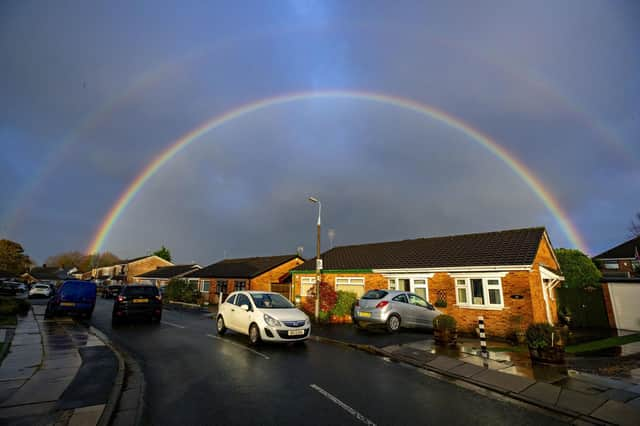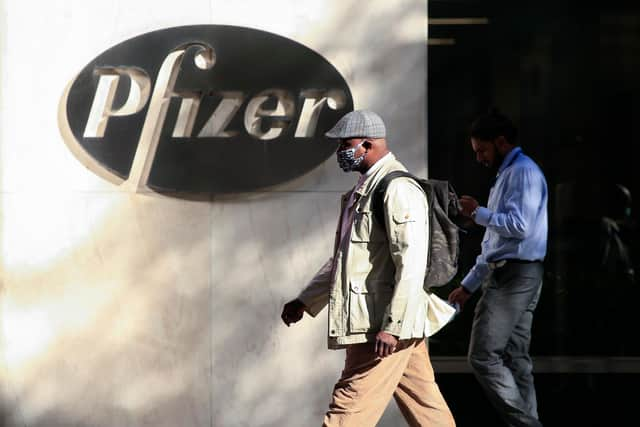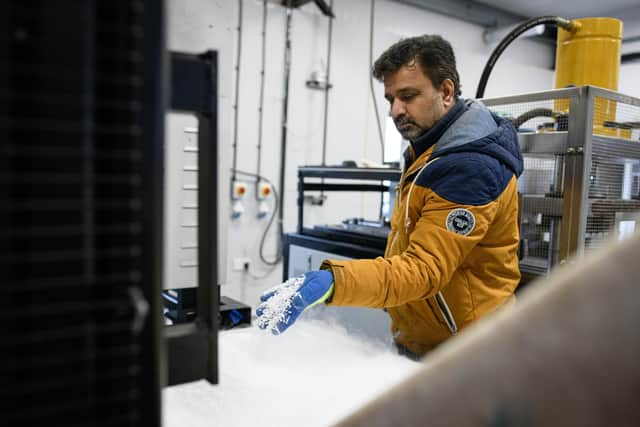In the Age of Covid, we shouldn't dismiss good news. Even Eeyore knows it stops raining eventually – Kirsty Strickland
This article contains affiliate links. We may earn a small commission on items purchased through this article, but that does not affect our editorial judgement.


In Scotland, the figure is around 5,000. Each of these deaths is a tragedy and a stark reminder of the scale of the challenge we face as this year ebbs towards its close.
While the darkness might seem all-encompassing at the moment, there is a flicker of light to be found in the distance.
Advertisement
Hide AdAdvertisement
Hide AdThe first Covid-19 vaccine to pass interim clinical trials, jointly developed by BioNTech and Pfizer, has outperformed expectations, proving 90 per cent effective in preventing people from falling ill. The news was described as “a great day for science and humanity” and the companies will apply for emergency approval to use the vaccine by the end of the month.
While no safety concerns have thus far been identified, questions over its efficiency will be explored over the coming weeks and months. There’s also the matter of logistics. Administering two doses of the vaccine, two weeks apart – to the entire population – will be a considerable task.
Magic disguised as meteorology
After so many months of heartbreak, you would assume that this news would be leapt upon, greedily, by a hope-starved public. Yet for some, there seems to be a reluctance to believe that the moment we’ve been waiting for could be close.


In a year where disappointment has been the norm and suffering is the only constant, it is understandable that many are automatically sceptical of good news.
If we were told that a meteor was on course to collide with the East Neuk of Fife, it would be more in keeping with the 2020 brand than this news of brilliant scientists charging in to save the day.
Now, more than ever, there is an element of self-preservation in disbelief. It’s natural – tempting even – to inure ourselves against disappointment by thinking that this news seems too good to be true.
There is a reason why rainbows became the mascot of lockdown. A rainbow never goes unnoticed. Whether in the sky or the window of a ground floor flat, if you see a rainbow you stop and acknowledge it is there.


The rainbow my six-year-old daughter painted for our window has “Be Happy” written on it. The directness of the instruction is softened through her use of bright primary colours and copious amounts of glitter.
Advertisement
Hide AdAdvertisement
Hide AdRainbows are an inclusive wonder. Their ordinariness is part of the appeal: you don’t need to climb a mountain or travel far in search of one. All you need is the caramel-tint of gentle sunshine after a rainy day. They are magic disguised as meteorology.
Indulge in an exquisite pleasure
During the spring lockdown, we were forced into a horrible new normal and craved reassurance that it wouldn’t be this way forever.
That we used wonky, hopeful rainbows as a way of communicating that to one another seems almost twee now.
And yet, would winter’s mascot – of brutal pessimism – have served us any better?
We have to hope. The alternative is accepting that we are doomed to an indefinite future of intermittent lockdowns, economic disaster and isolation.
We have all found our own ways to cope but there are no prizes for having the lowest expectations or bleakest predictions.
Back when I ate out (without helping out) and visiting a restaurant was a noisy, tactile experience, I always looked up the menu online beforehand. Not because I have any special dietary requirements, but because it added to the anticipation.
Upon arrival, sometimes what I had liked the look of on the online menu wasn’t available. Sometimes it was, but it wasn’t as tasty as I thought it would be. Occasionally, plans fell through and I didn’t end up going at all. If any of that happened, I didn’t mourn for the time I’d wasted salivating over the menu.
Advertisement
Hide AdAdvertisement
Hide AdWe won’t be shielded from future disappointment by assuming that this vaccine isn’t as promising as the scientists say it is. So why deny ourselves the exquisite pleasure of indulging in the possibilities?
A donkey for our times
The vaccine news might be everything and it might be nothing. Regardless, we should grab it and hug it close. The loss of life, loss of freedom and loss of human connection Covid-19 has brought is hard enough, without adding in a loss of hope as well.
I should point out that I have nothing against pessimists. Some of my best friends are pessimists. But too often, pessimism is mistaken for pragmatism.
There’s an intellectual weight given to opinions that rely heavily on cynicism and assuming the worst. Optimists, on the other hand, are often thought of as head-in-the-clouds, happy-clappy eejits who are too drunk on positive vibes to comprehend just how shit the world really is.
If pessimists were looking for a spokesperson, Eeyore would be the ideal candidate. The dour donkey is the perfect tonic to Pooh’s incessant chirpiness. He is the most relatable member of the gang precisely because his gloomy outlook hints at a life lived beyond the Hundred Acre Wood. When he says “The sky has finally fallen. Always knew it would” we know what he means.
Good news might feel like an aberration at the moment, but that doesn’t mean should distrust it.
Few will look back fondly on 2020, but there are reasons to be cheerful. Over the last few weeks we’ve seen the beginning of the end of Donald Trump, the Scotland men’s team have qualified for their first major football tournament in 22 years and the new season of The Crown starts tonight on Netflix.
The clouds will eventually begin to part. As Eeyore says, ‘’The nicest thing about the rain is that it always stops. Eventually.’’
A message from the Editor:
Thank you for reading this article. We're more reliant on your support than ever as the shift in consumer habits brought about by coronavirus impacts our advertisers.
If you haven't already, please consider supporting our trusted, fact-checked journalism by taking out a digital subscription.
Comments
Want to join the conversation? Please or to comment on this article.